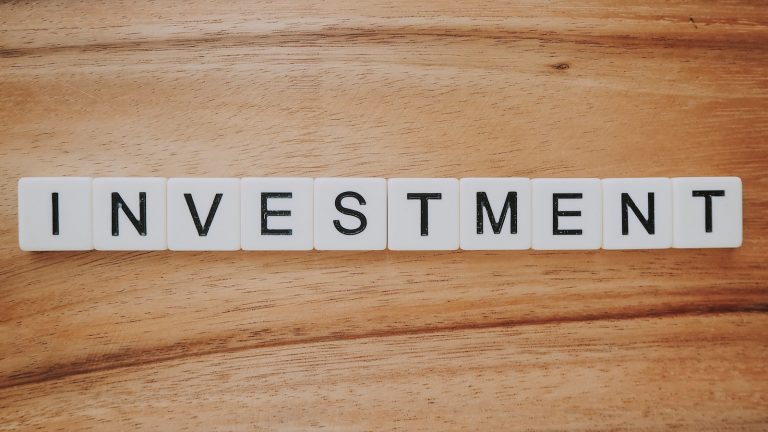Since the inception of index funds in the 1970s, the investment industry has incorporated the use of software to enhance its decision-making processes. The incorporation of these software solutions sparked public debate among fund managers, financial economists, and others alike. A notable argument emerged in a letter to investors from Berkshire Hathaway, where Warren Buffett, contended that investment success will not be produced by arcane formulae, computer programs, or signals flashed by the price behaviour of stocks and markets. Instead, he asserted that success is contingent on sound business judgment and the ability to shield one’s thoughts and actions from the highly infectious emotions permeating the marketplace.
Subsequently, there has been ongoing scrutiny of whether the utilisation of mathematical models in investments can outperform traditional investment strategies. As such, this article will explore the domain of quant funds, their performance in South Africa, and the impact they wield on the financial industry.
A Closer Look at the Situation:
The advent of artificial intelligence has brought the world on its feet, challenging conventional practices. Among the noteworthy innovations in the investment domain is the rise of Quantitative Funds, commonly called “quant funds.” These funds represent a departure from traditional investment strategies, leveraging advanced mathematical models and quantitative analysis to make investment decisions. The funds, for instance, are considered non-traditional and passive. Their operational foundation lies in meticulously crafted models, leveraging software programs to discern and dictate their investment strategies.
To put it briefly, these funds aim to generate returns by utilizing sophisticated quantitative strategies that are based on historical data analysis, statistical modelling, and mathematical computations. Quant funds typically follow a systematic and disciplined approach to investing, with a focus on risk management and portfolio optimization.
Research by SigTech a quantitative research company in England reveals that 1 in 5 hedge funds now apply quant investment processes. Furthermore, the company’s latest study shows that 22% of the world’s hedge funds use purely quantitative investment processes. Chances are, you have investments in some index funds categorized as robotic or quant funds. These funds are cost-effective and offer entry into the seemingly unstoppable recent surge in the stock market. Figure 1 illustrates the performance of quant funds from 2019 onwards. The chart indicates that since 2009, quant funds have experienced an approximate increase of 1,700%.
Figure 1: Quant Funds Growth (Source: Exploring Topics)

Fast forward to the present, and over the last decade, quant funds have consistently gained traction, now dominating the highest share of trading volume in institutional trading on US stock exchanges. Refer to Figure 2 for an illustration. In the United States, quant assets make up about 29% of the total hedge funds market. That amounts to more than $1.13 trillion at the end of March 2023.

Quants Funds in South Africa:
South Africa boasts a well-developed financial system, featuring a relatively liquid stock exchange, and consequently hosts quantitative funds within its market. Moreover, the South African market, overall, supports a substantial hedge fund industry. According to Hedge News Africa, assets in South African hedge funds reached R83 Billion in the 12 months ended December 2022, increasing by approximately 12.95% from R73.6 billion the year before. This number according to the research includes both dollar and rand classes, as well as private debt funds.
Locally, there has been a significant increase in the number and variety of index funds becoming quantitatively managed. These funds are overseen by investment firms such as SalientQuants, Laurium Capital, and Old Mutual, which possess expertise in quantitative research and portfolio management. The Old Mutual quant fund, initiated in December 2017 is one of the leading quant funds in South Africa and in recent years, the fund outperformed the market, boasting gross composite returns of 8.1% compared to the benchmark’s 6.5% over the same period. Over one year, it has yielded 23.4% versus the benchmark’s 20.8%, over three years 8.6% versus 6.9%, and 7.9% over five years versus the benchmark’s 6.5%.
Figure 3 below shows South African Assets by strategy in 2021. The illustration reveals that long-term or short-term equity represents approximately 55.9% of total assets by strategy in South Africa, whereas market neutral and quantitative represents about 7.7% is R5.5 billion of rand/dollar assets an increase from R5.38 billion the year before, a 3.02% gain. According to the research, the category outpaced the market as it maintained a median return of 8.83% during the year. The illustration below reveals that quant funds are making strides in the South African financial space.
Figure 3: South African Assets by Strategy

Possibility for Outperformance:
Now, let’s address the question on everyone’s mind. Can computers yield better returns than humans? Research indicates that quant funds have the potential to outperform traditional investment strategies in times of market distress or uncertainty. This is primarily attributed to their unique mandate of maximizing performance based on expected returns while simultaneously mitigating portfolio risk.
According to Vivek Sharma, head of investments at Gulaq, neither quant funds nor discretionary can shield against losses resulting from market volatility. However, research shows that the correlation between quant and discretionary is weak. This implies that investors could gain advantages by including both types of funds in their portfolios.
“The issue doesn’t lie in the style of investing, whether quant or discretionary, but rather in the concentration of methodology. Numerous quant funds have heavily depended on a single factor, often momentum, leading to considerable investor disappointment with the performance of momentum quant funds in 2022. On average, factoring in fees, slippages, and other transaction costs, momentum funds would have incurred losses,” stated Vivek Sharma.
Lastly, some quant funds have shown the ability to outperform the market over certain periods. They often leverage data analysis and statistical models to identify patterns and trends that human investors might overlook.
In conclusion, quantitative funds have revolutionized the investment landscape, bringing forth new opportunities and challenges. As technology continues to advance, the influence of quants is expected to grow exponentially, particularly in developing countries. Institutional Investors navigating the world of quant funds must strike a balance between embracing innovation and understanding the inherent risks, ultimately seeking a diversified and adaptive approach to navigate the complexities of today’s financial markets. Determining which strategy to adopt, whether it be machine-run or human-managed investments, can only be answered by considering one’s risk appetite.


